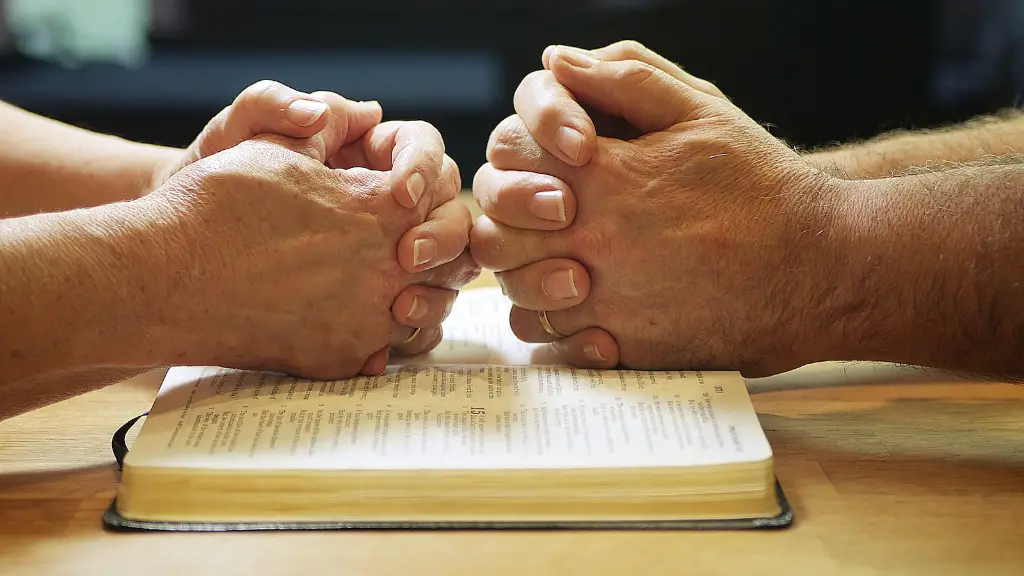Sheol is a Hebrew word that is generally translated as “grave” or “pit.” It is found in the Hebrew Bible, where it is used to describe the abode of the dead.
Sheol is mentioned in the Hebrew Bible about 65 times and is translated to “grave” about 31 times and “pit” about 34 times. Sheol is a place of darkness, silence, and loneliness. In the Hebrew Bible, it is often associated with death and the departed.
What is the purpose of Sheol?
Sheol is a place of darkness, silence, and dust to which the spirit, or vital principle, descends at death. It is likened to a vast house whose entrance is guarded, like family burial sites, by gates and iron bolts; to a prison in which the wicked are confined; and to a place of forgetfulness where the dead are no longer remembered.
Mandaeism is a monotheistic religion that originated in Mesopotamia. Mandaeans believe in a dualistic cosmology, with a world of light (ie, the heavens) and a world of darkness (ie, the underworld). In Mandaeism, the underworld is sometimes referred to as Sheol (Classical Mandaic: šiul).
Mandaeans believe that the soul is immortal and will be resurrected after death. Sheol is a place where the soul goes to await judgment. After judgment, the soul will either be sent to paradise or hell.
Mandaeans also believe in an apocalyptic end of the world, when all souls will be judged and the righteous will be sent to paradise while the wicked will be sent to hell.
What does Sheol mean in English
In Hebrew theology, Sheol is the abode of the dead or of departed spirits. In American English, it is pronounced as ˈʃioul.
There is no one word that has the same meaning as Sheol. Sheol is a Hebrew word that refers to the underworld, or the place where the dead reside.
Where did Jesus go after he died?
The ascension of Christ is an important event in Christianity, as it marks the moment when Jesus was taken up into heaven. The 40 days between the resurrection and ascension were spent appearing to the disciples and teaching them. After the ascension, Christ’s Spirit remained in heaven with the Father.
The Catholic view of hell is based on Sheol and Gehenna in Judaism. The church regards Sheol or Hades as the same as hell, being the place where Jesus descended to after death. The main difference between the Catholic view and other Christian views is the belief in purgatory. Catholics believe that after death, some souls go to purgatory to be purified before entering heaven.
Is purgatory in the Bible?
Roman Catholics who believe in purgatory interpret various biblical passages as support for praying for purgatorial souls. These passages include 2 Maccabees 12:41-46, 2 Timothy 1:18, Matthew 12:32, Luke 23:43, 1 Corinthians 3:11-3:15, and Hebrews 12:29. According to Catholic teaching, the souls in purgatory are in an active state, undergoing purification. Therefore, it is beneficial to pray for them, that they may be released from purgatory and brought into the presence of God.
The English word “hell” is derived from the Hebrew word “sheol”, which refers to the abode of the dead, the underworld, or the netherworld.
Is Sheol Abraham’s bosom
The “Bosom of Abraham” is a term used in the Bible to describe the place of comfort in the afterlife for the righteous dead. This term comes from the Greek Septuagint version of the Hebrew scriptures, which was written around 200 BC. In the New Testament, Jesus speaks of the “Bosom of Abraham” as the place where the righteous dead go after death.
Just as the sea is a place of darkness and death, so too is Sheol. Jonah uses this comparison to describe his own experience of being cast into the depths of Sheol. He goes on to say that just as the sea was a place of darkness and death, so too is Sheol.
What do you call heaven on earth?
Kashmir is a stunningly beautiful place and is often called “Heaven on Earth.” The scenery is breathtaking, with stunning views of mountains, valleys, and lakes. Kashmir is also home to a rich culture and heritage, with a long history and a rich tradition of art and music. There are many reasons to visit Kashmir, and it is truly a place like no other.
There is a belief that the word for “hell” is actually Sheol, and that it refers to the place where the dead go. This is why David is seen as more likely to be “in hell” than alive, because he would be considered dead in this interpretation.
What is the original word for heaven
Heaven is a place where God dwells and is the place where we will go when we die. It is a place of happiness, peace, and love.
In religious or mythological cosmology, the seven heavens refer to seven levels or divisions of the Heavens. The concept, also found in the ancient Mesopotamian religions, can be found in Judaism, Christianity, and Islam; a similar concept is also found in some other religions such as Hinduism.
The seven heavens may also refer to the seven Firmaments, with the first being the visible sky, and the others being progressively higher levels above it. In Judaism and Christianity, it is also known as the Seventh Heaven.
What did Jesus do when he was in the grave?
The visit to the spirits of those who had died is another main activity that Jesus did while his body lay in the tomb. He said that the dead will hear his voice and they will live. This is a powerful statement that shows that Jesus has the power to give life to those who have died.
Looking to Jesus as the crucified, risen Savior for one’s soul is what brings salvation, assurance of being in heaven for eternity. So from what Jesus said in Matthew 26:24, it would certainly appear that Judas is not in heaven.
Conclusion
According to the Bible, Sheol is a place of darkness and despair where the soul goes after death.
There is no one answer to this question as there is much debate among Biblical scholars about the meaning of Sheol. Some believe that it is simply the grave or the place of the dead, while others interpret it as a sort of underworld or purgatory. Whatever the case may be, it is clear that Sheol is a place of darkness and despair from which there is no return.





